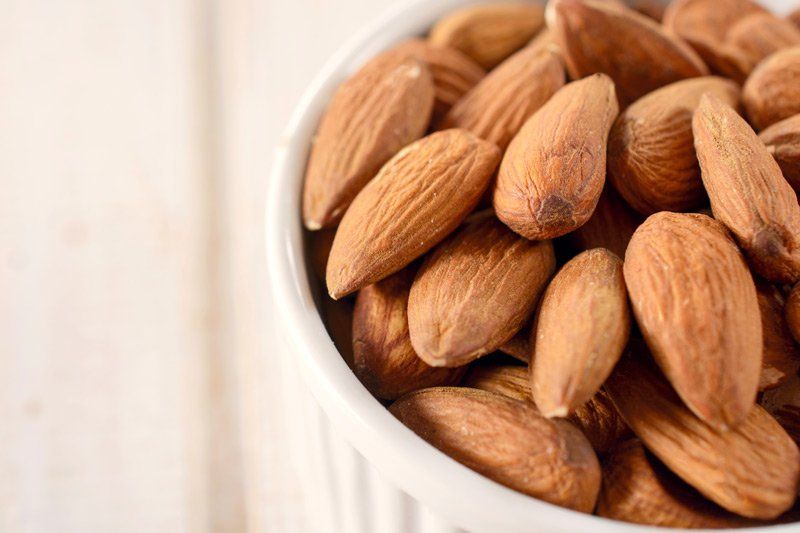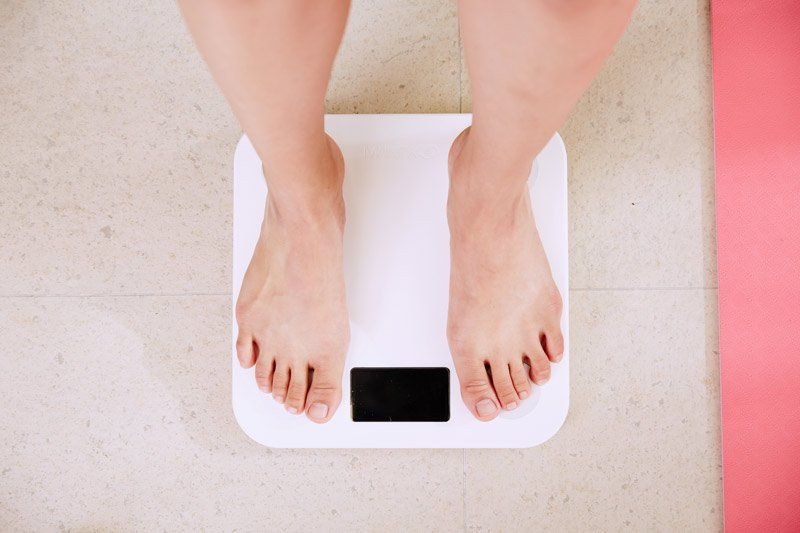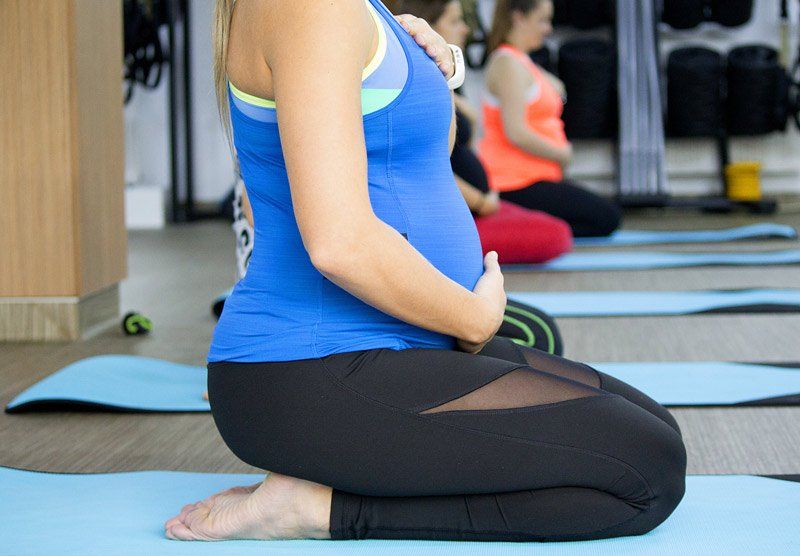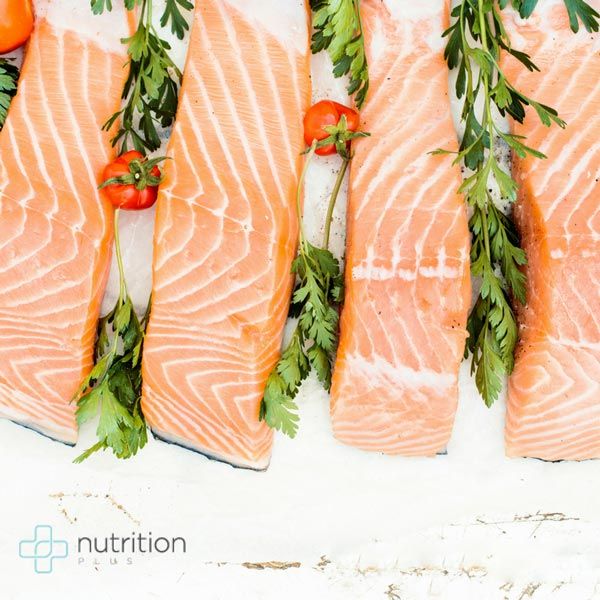Women's Health Week-It's time we put your health first
- By websitebuilder
- •
- 06 Sep, 2018
- •

Top tips for women’s health from Dr Mary Norris
It’s Women’s Health Week (September 3rd-7th) and this year’s theme is all about putting your health first for once!
The two biggest barriers for women not maintaining a healthy lifestyle is ‘lack of time’ and ‘health not being a priority’. Women’s Health Week is the time to put ourselves first, for just one week, and start making positive changes that can last a lifetime.
Promoting Healthy Women in Every Stage of Life
Women are leading busier lives than ever before, and we have a tendency to let ourselves slip low on our priority lists.
However, the health of those we love starts with us. By investing more time in ourselves, we are better able to look after the ones we love and care about.
Dr Mary Norris, Practice Principal of Newcastle Obstetrics & Ultrasound for Women in Warners Bay knows all too well how tricky it is for women to balance their hectic lives and their health. Below she has compiled some easy tips to follow to help our lovely local ladies to achieve health and wellness.
Top tips to help keep your health in check from Dr Mary Norris:
1. Don’t put off seeing your doctor
Helping you to keep on top of your physical and mental health is what your doctor is there for. If you aren’t taking care of yourself then it is almost impossible for you to also care for the ones you love especially in the long term. So be kind to yourself and schedule those regular health checks that you have been putting off and visit your doctor if you have concerns or worries about your health, it’s always better to be safe than sorry, especially when it comes to good health and peace of mind.
2. Schedule your cervical screening
Cervical screening has changed in Australia. The Pap test has been replaced by a new 'Cervical Screening Test' every five years. However, women of any age who experience symptoms, such as pain or unusual bleeding, should speak to their doctor immediately and not wait for their next Cervical Screening Test.
3. Exercise regularly
Exercise has been shown to increase wellbeing as well as reduce symptoms of depression and anxiety. Good physical health is related to better overall health so find an activity you enjoy doing and keep active.
4. Enjoy a healthy diet
Nutrition and eating well can make a difference to the way you feel and function. No matter what stage of life you are in, eating a balanced, wholesome diet can improve your mental and physical health. Also keep well hydrated and a handy a bottle of water close by.
5. Take time out
When you relax, you give yourself permission to let go of worries for a while. Relaxing gives your mind and body time to recover from the stresses of everyday life. Meditation exercises or listening to relaxation music can assist.
6. Get plenty of sleep
Sleep and mood are closely connected; poor or inadequate sleep can cause irritability and stress, while healthy sleep can enhance well-being. We cannot function properly without sleep. Sleep helps us to repair and restore our bodies and minds. So, try to ensure you are getting plenty of zzzz, while sleep requirements vary slightly from person to person, most healthy adults need between 7 to 9 hours of sleep per night to function at their best. Children and teens need even more.
7. Quit smoking
Whatever stage of life you are in, smoking is not good for your health. If you are trying to get pregnant or are pregnant it is particularly detrimental. So, make the change now for the good of you and your family.
Put yourself first now!
YOUR CHANCE TO WIN!
To celebrate Women’s Health Week, we are thrilled to be giving away a gift voucher for Utopia Skin and Spa.
Simply LIKE & SHARE our Facebook page for your chance to win! The lucky winner will be announced on Sept 30th. Best of luck everyone!
https://www.facebook.com/NewcastleObstetricsandUltrasoundforWomen/
HEALTHY, HAPPY WOMEN AND MOTHERS
If you have any concerns at all, please contact Newcastle Obstetrics & Ultrasound for Women, Women’s Health Centre in Newcastle. Call 4947 4903. We’re happy to serve you and work with you toward better health for you as a woman.
Resources:

Are you feeling exhausted with your pregnancy, but unsure about whether it’s safe to include caffeinated drinks to help boost you? You may have heard that it may not be great, but what actually are the facts?
Do you know how much is too much, and are you having too much? Should you cut it out all together?
How much is too much?
It is recommended that 200mg or less of caffeine per day may significantly reduce the risk of adverse birth and pregnancy outcomes associated with caffeine intake.
This table will help you to work out how you might add up to your 200g. We’re certainly not recommending the energy or soft drinks lol, but some of these might sneak into your day without you realising.
| Dose |
Amount of caffeine |
| 1 teaspoonful of instant coffee |
60mg |
| 1 cup (200ml) |
100mg |
| 1 shot espresso |
90mg |
| 1 black tea teabag |
50mg |
| 1 green tea teabag |
30mg |
| Energy drinks |
110mg |
| Cola soft drinks |
40mg |
| 60g milk or dark chocolate |
30-40mg |
What could go wrong?
Several studies that suggest that caffeine consumption during pregnancy may cause foetal growth restrictions, which are known to have detrimental impacts on foetal development.
One recent review depicts that caffeine intake during pregnancy may increase the baby’s risk of having a low birth weight. Authors commented that low birth weight infants may experience excess growth during infancy, childhood obesity and chronic disease later in life.
What did Margaret do?
Many women actually develop an aversion to coffee and even tea during pregnancy, but Margaret was not one of those. We were able to help with supporting her to cut down on her 4+ cups of coffee each day by providing alternative ideas that fitted with her tastes and habits. She was down to two or less within a week of her visit. Margaret was pleasantly surprised how good decaffeinated coffee tasted nowadays as she used to think it was nasty.
What could you drink instead?
An easy swap for coffee is decaf coffee and just swapping to tea may also be enough for you. You may find some herbal teas are quite tasty, and if you’re suffering with morning sickness many find the lemon and ginger flavoured one can make a big difference. Of course, there’s always water and carbonated water, and if you want some flavour why not try the cold water tea bags which are caffeine free. Milk-based drinks and even the nut-milks can be a good option too. If these ideas don’t appeal to you, check with your dietitian for more ideas.
How are you managing?
Are you having more than your two cups of coffee or three to four cups of tea? What are you substituting the extra ones for?
Call us to chat on 0249710770, remembering that we can arrange TeleHealth consults if you're too busy or live too far away. Accredited Practising Dietitian Sally Marchini at Marchini Nutrition is one of the specialist dietitians from the Australia-wide network Nutrition Plus who offer more than just nutrition advice - they offer experience, problem solving, understanding and most importantly compassion to assist you on your health journey in preconception, pregnancy, postnatally and for specific health concerns. Sally can be contacted via her website www.marchininutrition.com, the Nutrition Plus website www.nutritionplus.com.au, by telephone on 02-4971-0770, or by email at sally@marchininutrition.com
References:
(1) Adherence to the Caffeine Intake Guideline during Pregnancy and Birth Outcomes: A Prospective Cohort Study, by Amy Peacock et al., Nutrients 2018, 10(3), 319; ttps://doi.org/10.3390/nu10030319
(2) Maternal caffeine intake during pregnancy and childhood growth and overweight: results from a large Norwegian prospective observational cohort study, by Eleni Papadopoulou et al., BMJ Open 2018;8:e018895. doi: 10.1136/bmjopen-2017-018895

by Sally Marchini Accredited Practising Dietitian at Marchini Nutrition, Swansea
The colder months of winter can often cause our immune system to falter, putting us at risk of catching viruses such as the common cold. What we choose to eat during this period, especially if we’re pregnant, can make a big difference.
As well as the ‘usuals’ that we know contain the vitamins that keep us well such as fresh fruit and vegetables, an important consideration is our gut microbiome.
That’s the trillions of bacteria that live in our large intestine. It’s known that if we have sufficient numbers of the ‘good’ bacteria in our gut microbiome that they work hard to help keep us well. The way that we can ensure that they stay well is to feed them the food they like to eat. Fortunately for us in this colder weather, it’s many of the foods that we want to eat for comfort anyway that also prove to be so nutritious for our bub and its future health.

It is important during pregnancy to eat well and takes care of your health. This will ensure the baby has the best chance of a healthy life. A woman's body goes through many changes during pregnancy and different body shapes will be affected by pregnancy in different ways.
About one third of women start their pregnancy overweight and this can cause problems for both the mother and the baby. If you can, plan for your pregnancy. It is best to start pregnancy within the healthy weight range.
Aim to monitor your weight gain throughout your pregnancy by weighing yourself every couple of weeks.

All women who are pregnant without complications should be encouraged to participate in aerobic and strength-conditioning exercises as part of a healthy lifestyle during their pregnancy. A reasonable goal should be to maintain a good fitness level throughout pregnancy without trying to reach peak fitness.
It is important to stay well hydrated, wear comfortable and non-restrictive clothing (such as a correctly fitted bra and appropriate footwear) and where possible, avoid excessive over-heating.
Exercise during pregnancy offers many physical and emotional benefits. Physical activity may also help manage some symptoms of pregnancy and make you feel better, knowing you’re doing something good for yourself and your baby.

This can be a very exciting and overwhelming time of your life, filled with many, many questions. Take a deep breath, below we have compiled a list of useful questions that you can ask your obstetrician or midwife during your first prenatal visit to help reassure you and give you peace of mind during your wonderful journey.
It is important that you feel well-informed about your antenatal care and have accurate expectations about what will happen when you go into labour. The first prenatal visit usually happens between weeks 8 and 10, but it’s a good idea to let your provider know as soon as you find out you are pregnant.
Here are some useful questions you can ask during your first prenatal visit:


Drinking enough water is a necessity in order to stay healthy and ensure that your body functions smoothly. The importance of drinking water increases further if you are an expectant mother.
When you're pregnant, you need more water than the average person in order to form amniotic fluid, produce extra blood, build new tissue, carry nutrients, enhance digestion, and flush out wastes and toxins.
How much is enough?
Since you need more water during pregnancy, how much is enough? It’s recommended that you drink 8-12 glasses of water a day, or 2.3 litres. If your trips to the bathroom are frequent and your urine is pale or colourless, you're drinking is on track.
Could you be dehydrated?
Signs of dehydration to watch out for:
- Overheating
- Headaches/sluggishness
- Dark or concentrated urine
Benefits of keeping well hydrated when pregnant
Especially during hot summer months, as a mum to be you will want to make sure you stay adequately hydrated. Here are just some of the benefits of staying hydrated during your pregnancy:
- Decreases constipation/haemorrhoids
- Reduces swelling
- Prevents fatigue, headaches and
overheating
- Softens skin
- Increases energy
- Keeps you cooler
- Decreases risk of urinary tract
infections
- Decreases risk of preterm labour
and preterm birth
Having a hard time keeping hydrated? Follow these easy tips:
- Add fruits such as lemons,
limes, and frozen raspberries to your water.
- Avoid caffeine.
- Increase your fruit and
vegetable intake (they have water, too!).
- Milk, juice, sparkling water,
tea, and soups all count as water or fluid intake.
- Listen to your body; drink
enough fluids that you rarely feel thirsty.
- Drink enough fluids that your
urine is and colourless or light yellow.
- Stay out of the heat. Exercise
indoors or early or late in the day.
- Increase your fluid intake when
you increase your activity level.
Dehydration can lead to serious complications including; low amniotic fluid, kidney stones, swelling and urinary tract infections, which can lead to birth defects, preterm labour and preterm birth. It is therefore very important to keep well hydrated and please see your doctor if you have any concerns.
The team at Newcastle Obstetrics & Ultrasound for Women are here to support you during your pregnancy, call 4947 4903.



